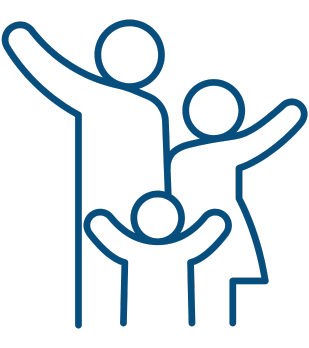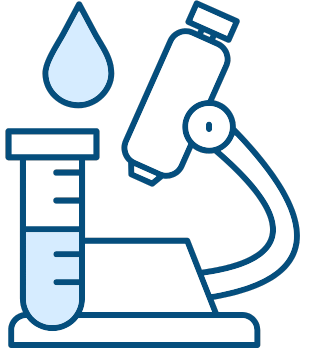Do you wake up in the morning feeling like you haven’t slept at all? Do you often feel tired, tense, complain of poor memory and headaches? If this is your daily routine, it could be a sign that you have chronic fatigue syndrome.
More and more people are complaining of more frequent fatigue, general weakness and low mood. More and more of us are experiencing a lack of concentration and energy and reduced stamina. Although fatigue is usually a perfectly normal and temporary physiological state of the body, especially after hard work or increased physical exertion, the symptoms of fatigue can accumulate and lead to the development of serious illnesses due to a lack of rest, inadequate work and rest schedules, poor sleeping and eating habits, and a lack of attention to health. This persistent state of well-being should be a cause for concern, as it can be a warning sign of chronic fatigue syndrome.
Fatigue is one of the biggest problems in modern society. Economic progress and successes affect the pace of our lives, forcing people to hurry. This pace and the lack of attention to our health lead to various bodily disorders, tension, stress and illness. Prolonged, strenuous physical or mental work, large amounts of information and emotional stress can lead to chronic fatigue syndrome (CFS).
Chronic fatigue syndrome, or overwork, is a condition in which you feel tired all the time for no apparent reason. According to the Centers for Disease Control and Prevention (CDC), 17-24 million people worldwide suffer from CFS.
In this article, together with Drops Clinic’s expert physicians, we will look at the symptoms of chronic fatigue syndrome, its course and possible treatments..
Our servicesChronic fatigue syndrome – what is it?
Chronic Fatigue Syndrome (CFS) is a condition characterised by persistent or recurrent fatigue that persists after sleep, reduces our activity levels and interferes with work, study or social life. In simple terms, chronic fatigue is an overwork or a condition in which there is persistent physical or mental fatigue, without any apparent cause, lasting for at least 6 months.
The syndrome often causes symptoms such as short-term memory impairment, headaches, muscle, throat or joint pain. Sufferers of CFS have trouble sleeping, insomnia or wake up without sleeping. Sometimes sufferers also complain of joint pain or even depression. The symptoms of CFS can vary and fluctuate depending on the time of day or the moment in life that a person is in.
Chronic Fatigue Syndrome affects up to 2% of the world’s population. Diagnosing chronic fatigue syndrome is difficult because there is no specific test or examination that can immediately diagnose the condition. It is diagnosed only on the basis of the symptoms expressed by patients, which is why many scientists and doctors doubt the veracity of chronic fatigue syndrome.
The difference between CFS and normal fatigue is that for CFS sufferers, fatigue does not disappear even after several consecutive nights of good sleep, rest or even after a holiday. In contrast, ordinary fatigue usually disappears after a good night’s sleep.
Chronic fatigue is classified as a neurological disease, but also involves the muscular, digestive, cardiovascular and immune systems. It is therefore important to carry out thorough investigations to rule out other diseases with similar symptoms and to confirm chronic fatigue syndrome.
Where does chronic fatigue syndrome come from?
Chronic Fatigue Syndrome (CFS) is a disease with a variety of causes that are not yet fully understood by science. Scientists disagree on whether CFS can be caused by immune system failure or dysfunction, hormonal disorders or viruses. It has also been noted that constant nervous tension and high emotional and psychological stress can cause disturbances in the central nervous system and be one of the causes of the disease.
In addition, it has been observed that a significant number of cases of MND follow infectious diseases, and sometimes trauma may be involved. Most patients report that they have often been under severe stress before they developed MND. The disease is more common in younger and middle-aged people, mostly women.
A variety of factors can cause ALS, such as prolonged mental and psychological fatigue, weakened immunity, stress, malnutrition, insomnia, an unfavourable psychological atmosphere and even prolonged lack of sunlight. It is also known that people with this syndrome usually have elevated levels of the hormone melatonin in their blood, which regulates the body’s biorhythm.
Diagnosing CFS is difficult because there is no specific test or examination that can immediately identify the condition. It is therefore important to carry out a thorough diagnosis to rule out other diseases that may present similar symptoms and to confirm chronic fatigue syndrome.
However, it is important to note that CFS is a highly individual disorder and may be caused by other, not yet fully understood, causes. Further research and understanding of CFS is therefore essential to better diagnose and treat this condition.
Symptoms of chronic fatigue syndrome
The main symptom of chronic fatigue syndrome is constant tiredness, especially after any physical activity, even a slow walk. Often, the disease leads to sleep disturbance, insomnia, and a feeling of not getting enough sleep even after 8 hours of sleep. Sometimes, joint, muscle and headaches and depression may occur. Constant fatigue and exhaustion can lower immunity and cause frequent sore throats and colds. Symptoms can vary from day to day, sometimes getting better, sometimes worse.
Chronic fatigue syndrome is not easily diagnosed because its symptoms are similar to those of other diseases. Often the symptoms can resemble the course of a chronic illness, causing the person to worry and seek a diagnosis, even though no illness is found. It is therefore important to carry out more detailed investigations and rule out other possible causes before a definitive diagnosis of CFS is made.
There is no specific test to diagnose Chronic Fatigue Syndrome that can do so immediately. However, the most characteristic symptoms for diagnosing the disease are: new-onset fatigue, unrelated to the chronic disease, which does not disappear after rest or sleep and which interferes with work, education or social life. The symptoms of chronic fatigue must have lasted more than 6 months.
Chronic fatigue syndrome can cause a wide range of symptoms depending on the type of fatigue. Symptoms of mental fatigue include reduced concentration, memory problems, apathy, forgetfulness and reduced initiative. Emotional fatigue can include mood swings, irritability, irritability and low satisfaction. Physical fatigue is characterised by reduced exercise tolerance, muscle weakness and sleep disturbance.
CFS can also affect daily life, work, social activities and personal well-being. Energy is lost, apathy towards previously enjoyed activities develops, and frequent mood swings occur.
It is important to consult a doctor if you experience similar symptoms and suspect that you have CFS. Early diagnosis and treatment are essential as untreated chronic fatigue syndrome can mask and lead to other illnesses, including depression.
How to treat chronic fatigue syndrome?
The treatment of chronic fatigue syndrome (CFS) is often symptomatic, aimed at reducing the intensity of symptoms and improving the patient’s quality of life. There is no one-size-fits-all treatment approach that is effective for all patients. Doctors often take a personalised approach, tailoring treatment to the patient’s needs and the severity of symptoms.
The treatment of chronic fatigue involves several approaches. It is important to establish a proper sleep and rest regime and to avoid excessive physical and emotional exertion. Physical therapy, such as breathing exercises, gentle exercise and muscle strengthening, can help to reduce symptoms and improve general well-being. Psychological support, therapy, stress-reducing exercises and counselling with a psychologist can help patients to overcome the difficulties associated with MND.
Medication can also be used to relieve pain, regulate sleep or manage other symptoms associated with LNS. Intravenous therapy is a new approach in which patients are given nutritional supplements, antioxidants and vitamin injections to improve energy levels and reduce the intensity of symptoms. Ozone therapy is also an excellent, effective and natural way to improve well-being and combat fatigue.
In addition, it is important to pay attention to diet and to consume food that provides sufficient energy and nutrients for the body. A healthy and balanced diet enriched with whole foods can help improve symptoms and overall health.
registerKey ways to treat chronic fatigue and help yourself:
- Nutrition: a balanced diet rich in fruit, vegetables, whole grains and whole foods can help your body regain energy and cope with symptoms of chronic fatigue. It is important to eat foods that provide enough beneficial nutrients for the body. You should also avoid sugar, fried and smoked products and try to drink enough fluids.
- Physical activity: Regular physical activity, such as walking, running, exercise or yoga, can help to reduce the symptoms of CFS and improve general wellbeing. Physical activity stimulates the production of endorphins, which can help combat stress and increase positive feelings.
- Intravenous therapy: Intravenous therapy is a type of treatment that involves the injection of nutritional supplements, medicines and vitamins. This therapy can help improve energy levels, reduce the intensity of the symptoms of CFS and provide the body with the nutrients it needs to fight the symptoms.
- Ozone therapy: Ozone therapy is a natural and effective way to improve the body’s condition, health and quality of life. Ozone, the strongest natural oxidant and source of active oxygen, is used for therapy. The therapy is completely natural and does not cause any allergies or side effects. Ozone kills pathogenic micro-organisms, stimulates blood circulation, metabolism and immunity, strengthens the nervous system, relieves pain and improves general well-being. Ozone therapy is therefore an excellent way to combat chronic fatigue and its symptoms.
- Psychological support: Psychological support, such as cognitive behavioural therapy, stress-reducing exercises and counselling with a psychologist, can help patients to overcome the difficulties and stresses of having CFS. These approaches can help to cope with stress, depression, anxiety and distress, and alleviate the symptoms of CFS.
- Medication: In some cases, your doctor may prescribe certain medications to treat your IBS. These may include pain killers, sleep regulators or other medicines that help manage the symptoms associated with LNS. Sometimes antidepressants may be prescribed to help relieve the symptoms of LNS. It is important to understand that medication cannot cure LUTS, but it can be helpful in reducing symptoms.
- Alternative therapies: Some patients may choose to try alternative therapies such as acupuncture, massage, tai-chi or yoga. Although research on the effectiveness of these therapies for MND is limited, some patients report symptom relief and improved emotional well-being with these tools.
It is important to remember that treatment for MND should be personalised and tailored to the patient’s needs. Treatment for MND should be comprehensive, involving lifestyle changes, psychotherapy, physiotherapy and, if necessary, medication. Lifestyle modification, including adequate sleeping patterns, regular physical activity, a balanced diet and stress management techniques are key. It is therefore important to consult a doctor and other specialists to determine the appropriate treatment plan, taking into account the patient’s symptoms and health status.
Fatigue is a perfectly normal and temporary physiological state of the body, but constant lack of rest, stress and inadequate daily routines lead to the accumulation of fatigue and the development of a serious disease, chronic fatigue syndrome. Chronic fatigue syndrome is a condition in which there is persistent physical or mental fatigue for no apparent reason and the symptoms last for more than six months. If you are experiencing symptoms similar to Chronic Fatigue Syndrome, take care of yourself and contact Drops Clinic’s medical specialists to help you restore your energy and quality of life.
register



